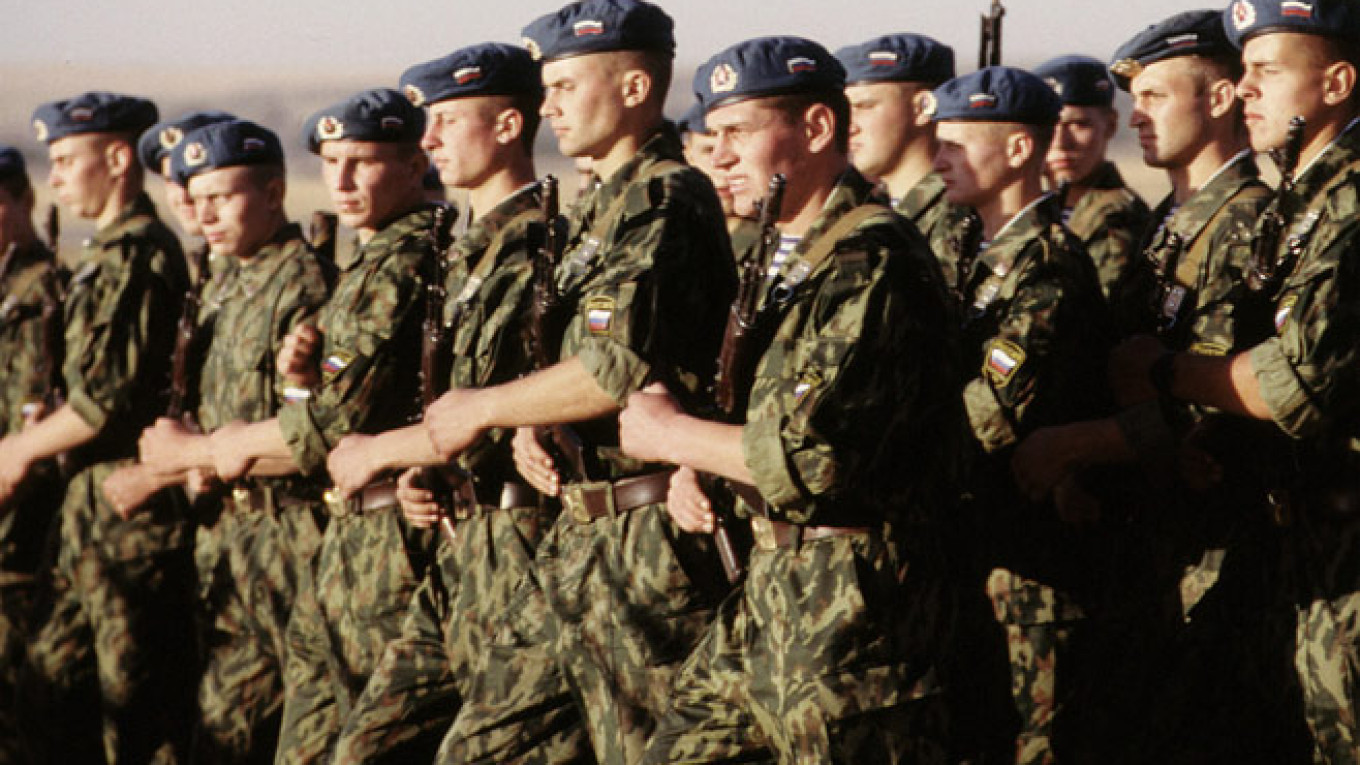Vladimir Putin has just signed a decree on creating a new military reserve, following an initiative mooted for years. In the process, he is all but admitting that the existing reserve structure is moribund. And, if you accept that, implicitly the main positive reason for keeping conscription begins to evaporate — leaving only the unpalatable truth that Moscow cannot pay or recruit enough professional soldiers to make up for the shortfall ending the draft would mean.
In theory, all draftees become reservists after their national service. Russia still inducts up to some 300,000 young men into the draft every year, so that should mean an extensive and robust reserve: 2.5 million compared with 1.1 million in the United States, for example. However, it is scarcely a secret that in practice the system is hopelessly broken; reservists do not do the annual refresher training they are meant to take, the training resources are neglected, and even the records to call them back into service are often inaccurate or out of date.
Hence this new reserve-within-a-reserve, something halfway between the existing system and something like the U.S. National Guard or the British Army Reserve (formerly the Territorial Army): volunteers paid a monthly stipend in return for their undertaking regular training and being subject to priority call-up. There will only be a few of them — the initial target is just 5,000 men — but it represents a serious indictment of the old reserve system. Why this is worth dwelling on briefly is that one of the main rationales for maintaining the draft is that it is necessary in order to build a large mobilization reserve of trained young men who, in times of some future "big war," can be brought under arms, allowing the field army to be expanded to one several million strong. (Albeit one equipped with stockpiled, out-of-date weapons of perhaps questionable repair.) This was the Soviet military philosophy and despite all kinds of promises and plans to transition to an all-volunteer force, it remains implicitly the Russian model.
Putting aside the question as to quite what kind of a "big war" Russia imagines it could be fighting in the future (even mobilized, its forces cannot outnumber China's, or outgun NATO's), if Moscow is admitting that its present reserve system is not working, this takes away that rationale.
Conscripts who once served for two years now serve for only one, hardly learning more than the basics of military service. The usual rule of thumb is that they are only really "usable" for three months of those 12, between finishing their basic and unit training and getting demob happy at the end of their service. An unscientific but indicative poll by the Russian army newspaper Krasnaya Zvezda asked its readers whether a year was enough: three-quarters of respondents said that it did not allow for proper training and seasoning. And as Putin's ambitious armament program bears fruit (officially over 70 percent of weapons systems are now "modern," whatever that means) then the question of soldiers' technical expertise and experience becomes all the more crucial.
So why not simply make the same jump most Western militaries have and shift to an all-volunteer model? Professionals serving three-plus year contracts are, presumably, going to be better trained, more experienced and motivated.
The answer, of course, is money. If the reserve is the positive reason for keeping the draft, the negative one is that if you do feel you need three-quarters of a million soldiers under arms, having half of them as draftees being paid a trivial allowance rather than competitive salaries is rather cheaper. Moscow has in the past had trouble recruiting enough even to balance those finishing their contracts and choosing not to renew. The current official target is to have 499,000 kontraktniki by the end of 2017, which means recruiting 50,000 a year over and above those needed simply to make up for volunteers leaving the service (18,000 in 2014).
In 2014, they got more than 70,000, which is an impressive step forward, and meant that for the first time there were more volunteers than conscripts. It remains to be seen if they can maintain that momentum, especially as economic pressures bite. (Will they reduce the armed forces' total size, making it easier to raise the professional share; or reduce pay, making it harder; or just make the cuts elsewhere?). Either way, increasingly the signs are that the logic of the Russian military is toward abolishing the draft at last. But whether the politics and economics also align is always uncertain.
Mark Galeotti is professor of global affairs at New York University.
A Message from The Moscow Times:
Dear readers,
We are facing unprecedented challenges. Russia's Prosecutor General's Office has designated The Moscow Times as an "undesirable" organization, criminalizing our work and putting our staff at risk of prosecution. This follows our earlier unjust labeling as a "foreign agent."
These actions are direct attempts to silence independent journalism in Russia. The authorities claim our work "discredits the decisions of the Russian leadership." We see things differently: we strive to provide accurate, unbiased reporting on Russia.
We, the journalists of The Moscow Times, refuse to be silenced. But to continue our work, we need your help.
Your support, no matter how small, makes a world of difference. If you can, please support us monthly starting from just $2. It's quick to set up, and every contribution makes a significant impact.
By supporting The Moscow Times, you're defending open, independent journalism in the face of repression. Thank you for standing with us.
Remind me later.


